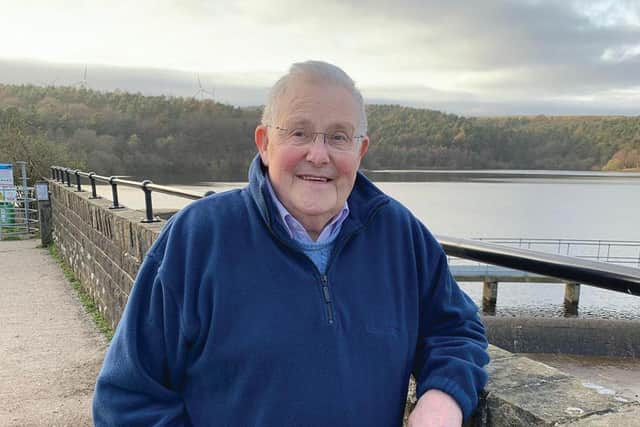Halifax man undergoes life saving heart treatment during pandemic praises NHS staff
and live on Freeview channel 276
Lewis Benn has been living with heart valve disease and was waiting for treatment before the coronavirus pandemic hit the country
However the 75-year-old was able to undergo treatment at Leeds General Infirmary.
Advertisement
Hide AdAdvertisement
Hide Ad“I was very short of breath and had great difficulty walking up the stairs, following a visit to my doctor's I was referred for pioneering treatment.


"I was on the waiting list when the virus hit, I thought it wasn’t going to happen and I was going to die. Then I got the call.
"I was put in an isolation ward, tested negative for COVID-19 and the following day I went in for my treatment. An hour and a half an hour later I was treated, back in my hospital bed and was able to go home the next day feeling like a different man.
“That TAVI team deserve the world. When I laid there, the nurse was reassuring me, they were absolutely amazing. At one point during the op she said ‘we’re just putting your valve in now, and I thought blooming heck.’ All I felt was a bit of dizziness. They were amazing, everything they did my whole time there was incredible. What a superb team of people”
Advertisement
Hide AdAdvertisement
Hide AdIt is known that many people living with the condition do not experience severe or noticeable symptoms.
As many existing patients shield or isolate noticing common symptoms such as breathlessness and reduced physical activity is even harder to spot.
As more than half of symptomatic patients with severe aortic stenosis (the most common form of heart valve disease) die within two years of developing symptoms identifying symptoms is critical.
Other symptoms include chest tightness and/or pain, palpitations, fatigue, dizziness and fainting.
Advertisement
Hide AdAdvertisement
Hide AdIf diagnosed and treated early, the vast majority of patients return to a good quality of life.
Doctor Dan Blackburn from Leeds General Infirmary said: “"Rapid treatment of symptomatic severe aortic stenosis is critical to the life of the patient; without treatment survival is poor. Because of this we have continued to offer trans-catheter aortic valve implantation for patients like Mr Benn throughout the Coronavirus pandemic.
"We were able to assess Mr Benn via telephone consultation, perform TAVI under local anaesthetic, and discharge him home the following day.
"There was no requirement for a ventilator, ICU bed, or prolonged hospital stay. This approach therefore minimised both the risk to the patient from hospitalisation, and the use of pressured hospital resources during this uniquely challenging period."